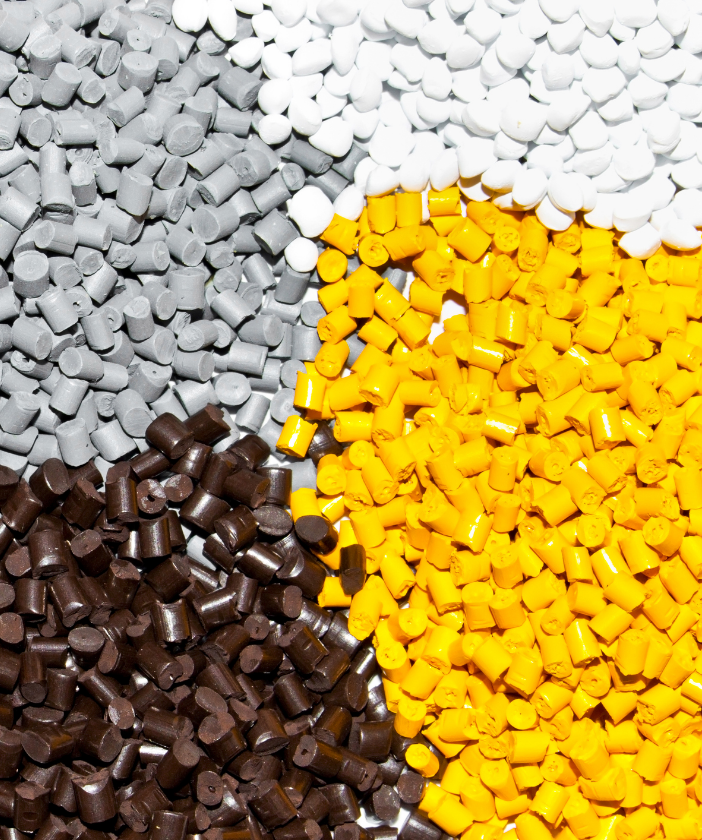Extrusion / Compounding
GTS recycling’s extrusion/compounding process represents a major advancement in the field of waste management, offering a sustainable and efficient solution to the problem of plastic waste. The flexibility of the process is particular allows for the recycling of a wide range of plastic waste streams from post-industrial, post-consumer as well as contaminated industrial waste. This adaptability makes us an ideal solution provider for businesses and industries looking to reduce their plastic waste footprint and improve sustainability credentials.
Reduce production cost over time
Another advantage of the extrusion/compounding process is its cost-effectiveness. By using recycled materials instead of virgin materials or as a percentage addition, businesses can reduce their production costs, which can result in significant cost savings over time. Furthermore, the use of recycled materials also helps businesses to meet their sustainability goals and improve their brand reputation, which can be a valuable asset in today’s increasingly environmentally conscious business landscape.
Key challenges
One of the key challenges facing the recycling industry is the production of high-quality recycled materials that can compete with virgin materials. Our extrusion/compounding process addresses this challenge by producing recycled materials that are comparable in performance to virgin materials. This means that the recycled materials can be used in a wide range of applications, without compromising on performance or quality.
Finally, the extrusion/compounding process offered by GTS recycling is playing a crucial role in addressing the global plastic waste crisis. By converting plastic waste into new raw materials, GTS recycling is helping to reduce the amount of plastic waste that ends up in landfills and the wider environment and contributing to the development of a more sustainable future. With the increasing awareness of the need for sustainable solutions, GTS recycling’s extrusion/compounding process is likely to play an increasingly important role in the years to come.

Reduce production cost over time
Another advantage of the extrusion/compounding process is its cost-effectiveness. By using recycled materials instead of virgin materials or as a percentage addition, businesses can reduce their production costs, which can result in significant cost savings over time. Furthermore, the use of recycled materials also helps businesses to meet their sustainability goals and improve their brand reputation, which can be a valuable asset in today’s increasingly environmentally conscious business landscape.
Key challenges
One of the key challenges facing the recycling industry is the production of high-quality recycled materials that can compete with virgin materials. Our extrusion/compounding process addresses this challenge by producing recycled materials that are comparable in performance to virgin materials. This means that the recycled materials can be used in a wide range of applications, without compromising on performance or quality.
Finally, the extrusion/compounding process offered by GTS recycling is playing a crucial role in addressing the global plastic waste crisis. By converting plastic waste into new raw materials, GTS recycling is helping to reduce the amount of plastic waste that ends up in landfills and the wider environment and contributing to the development of a more sustainable future. With the increasing awareness of the need for sustainable solutions, GTS recycling’s extrusion/compounding process is likely to play an increasingly important role in the years to come.